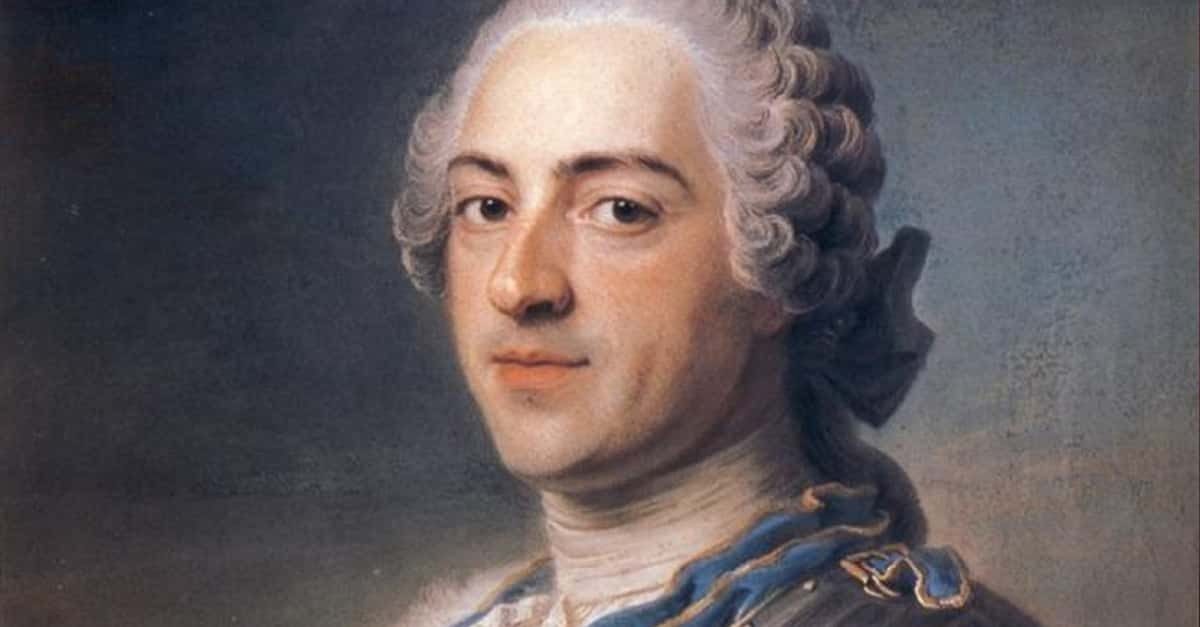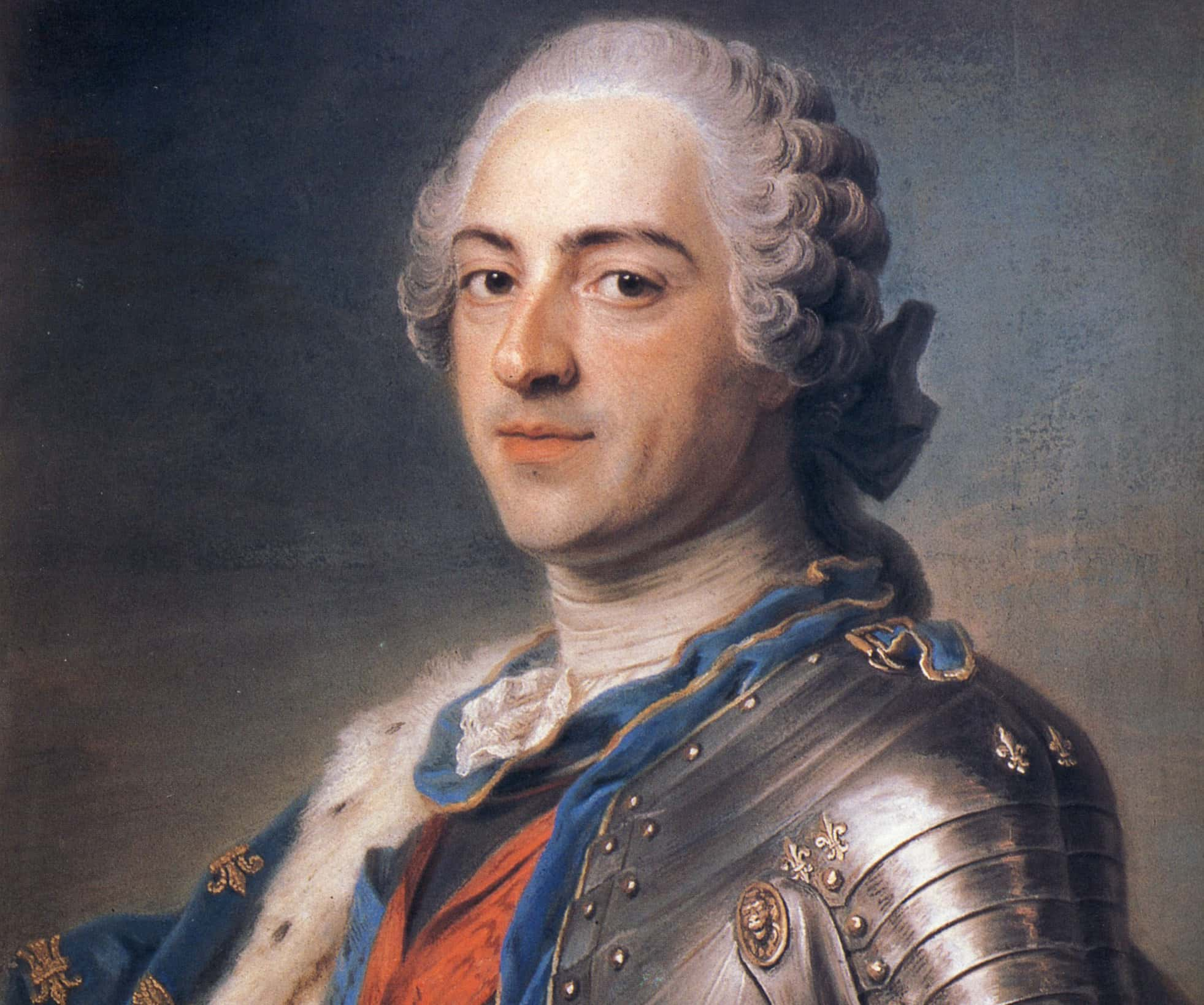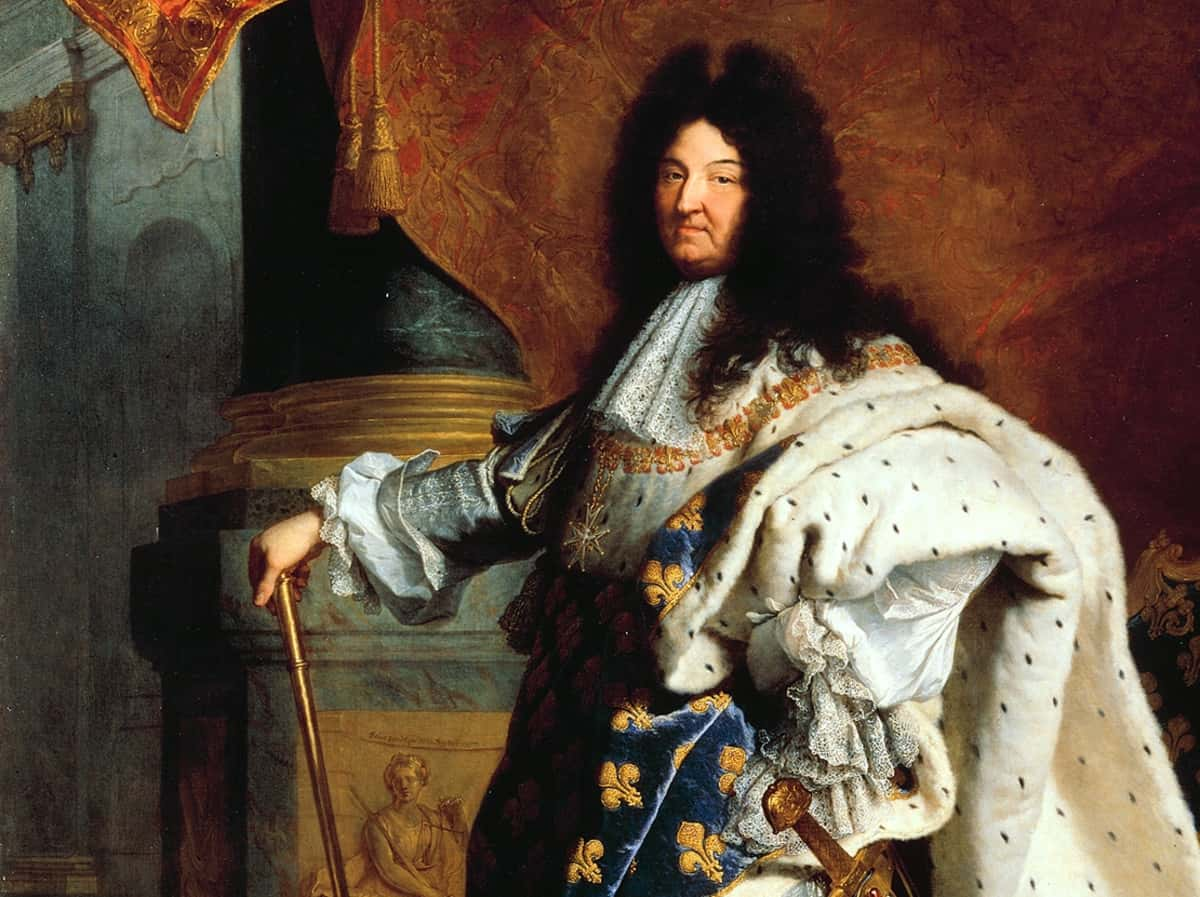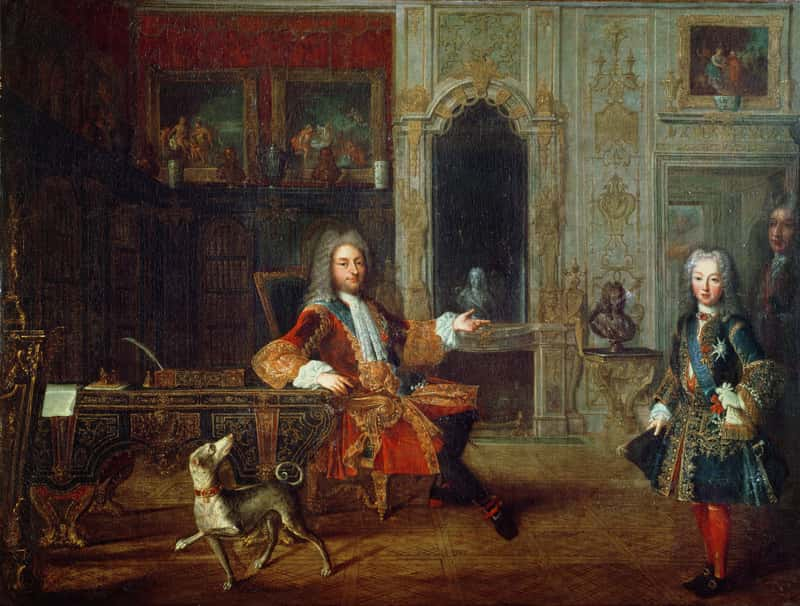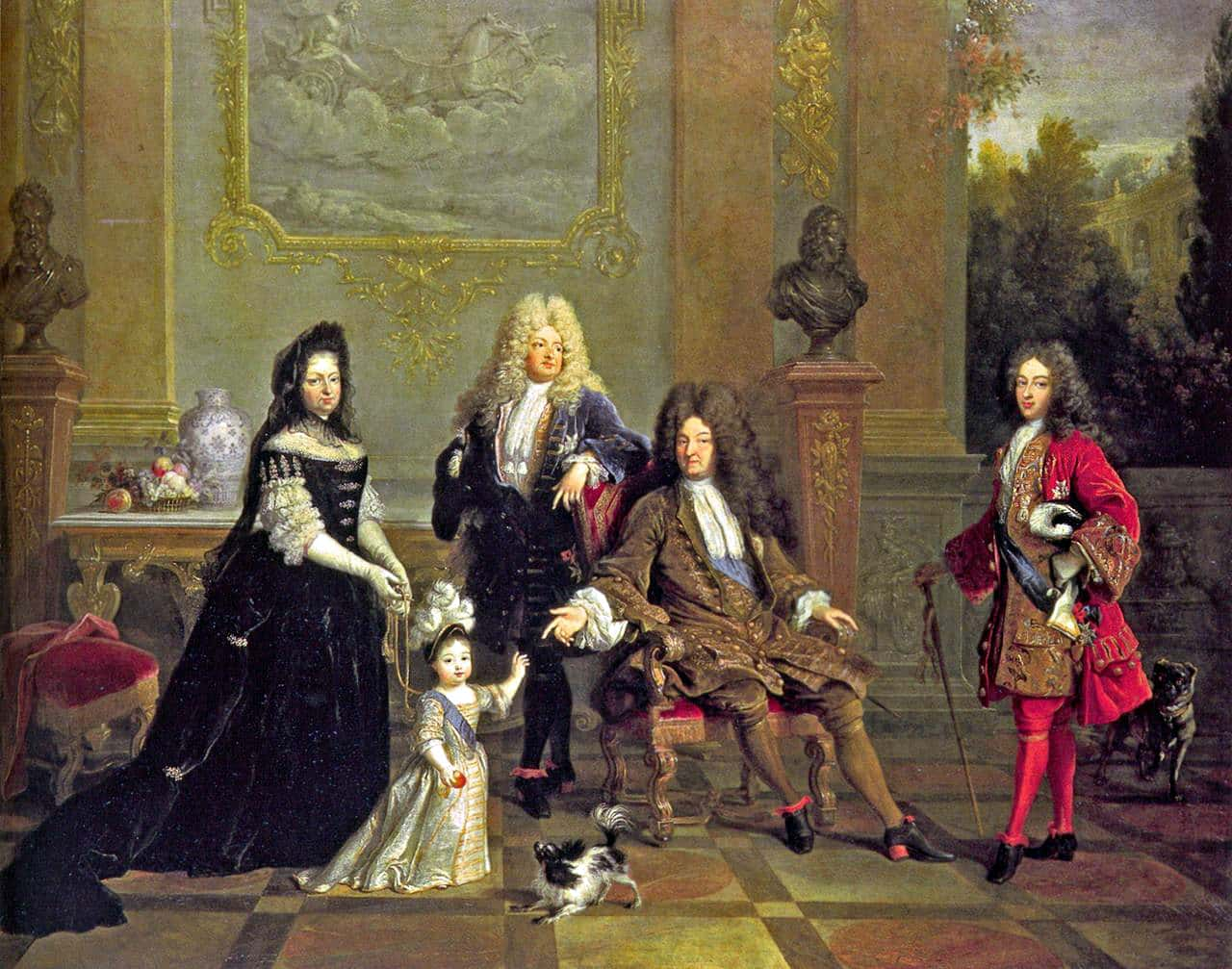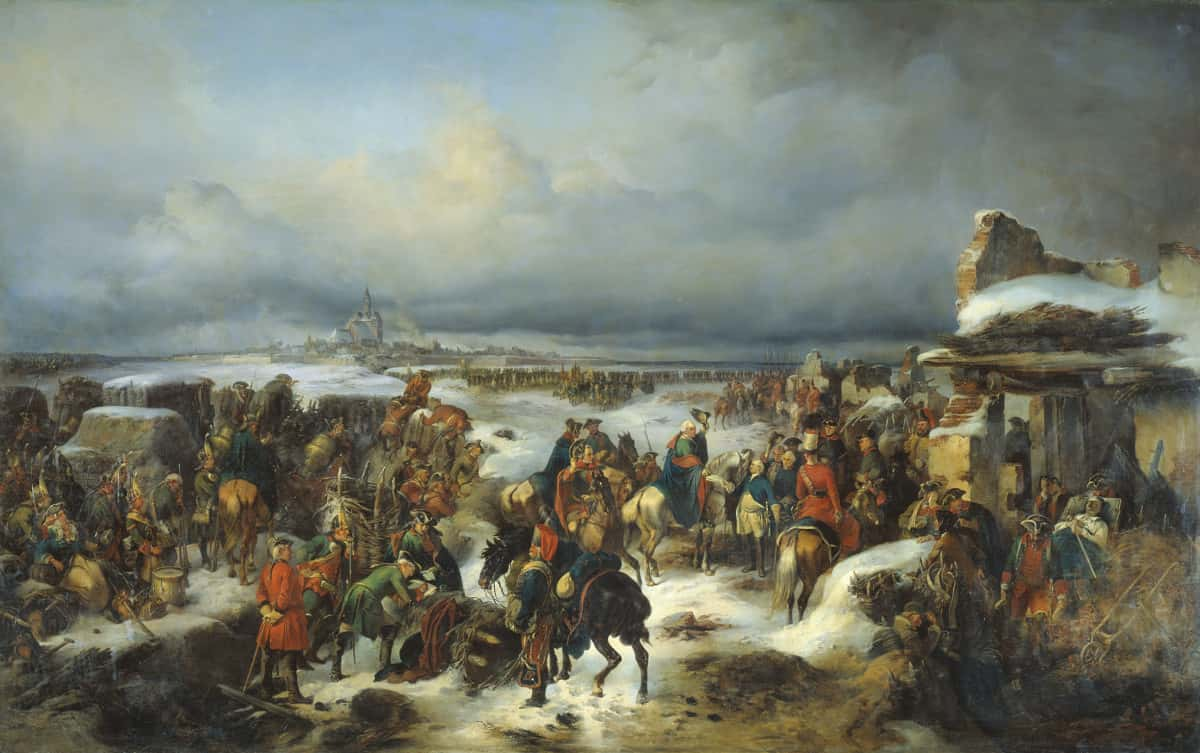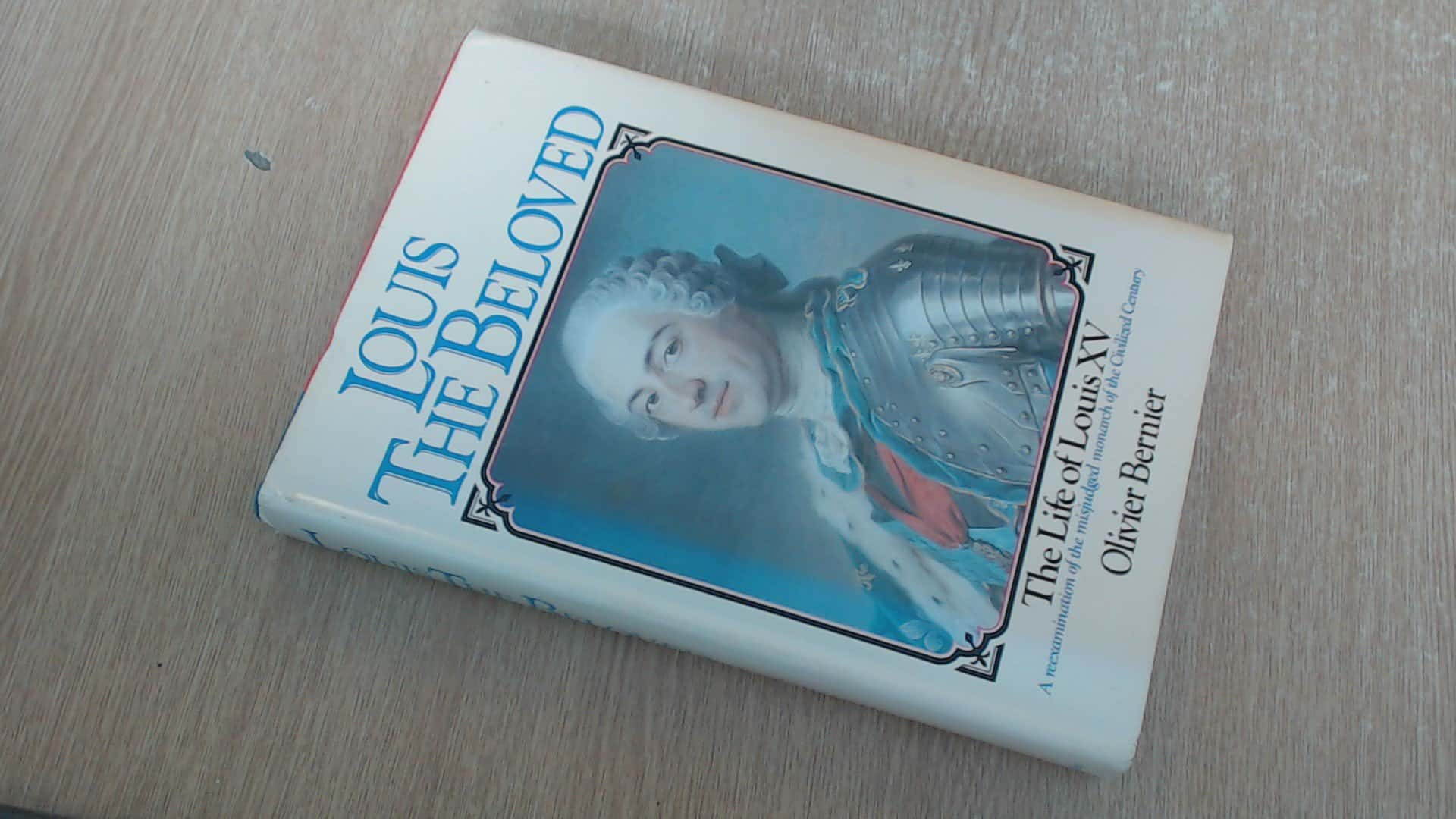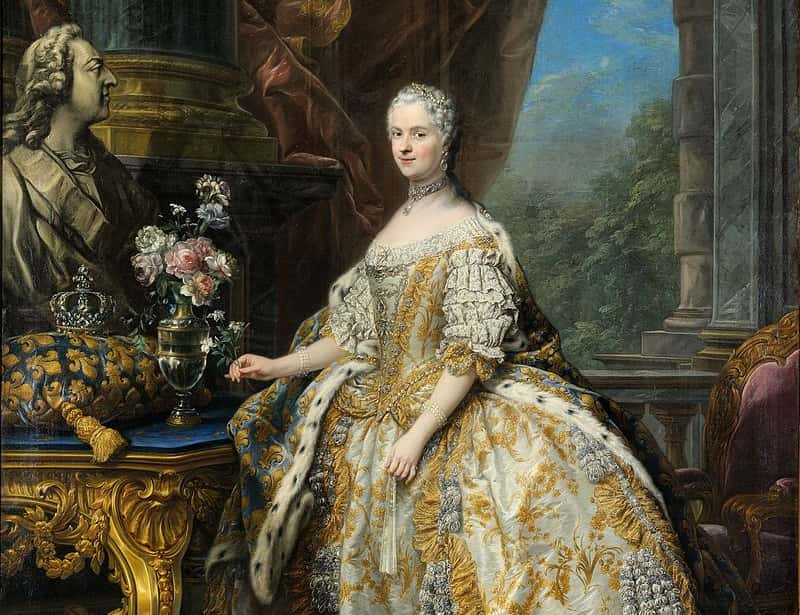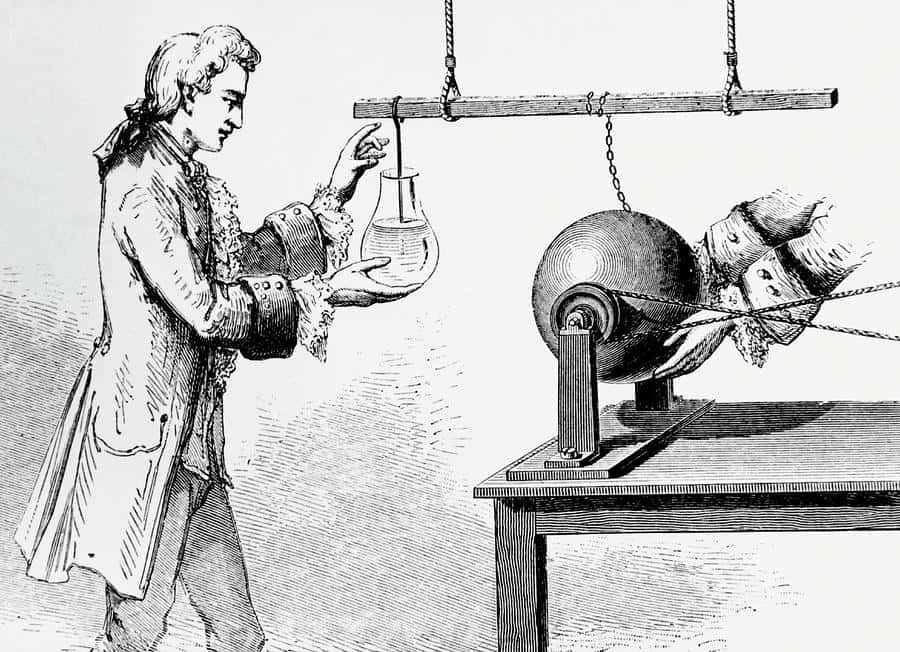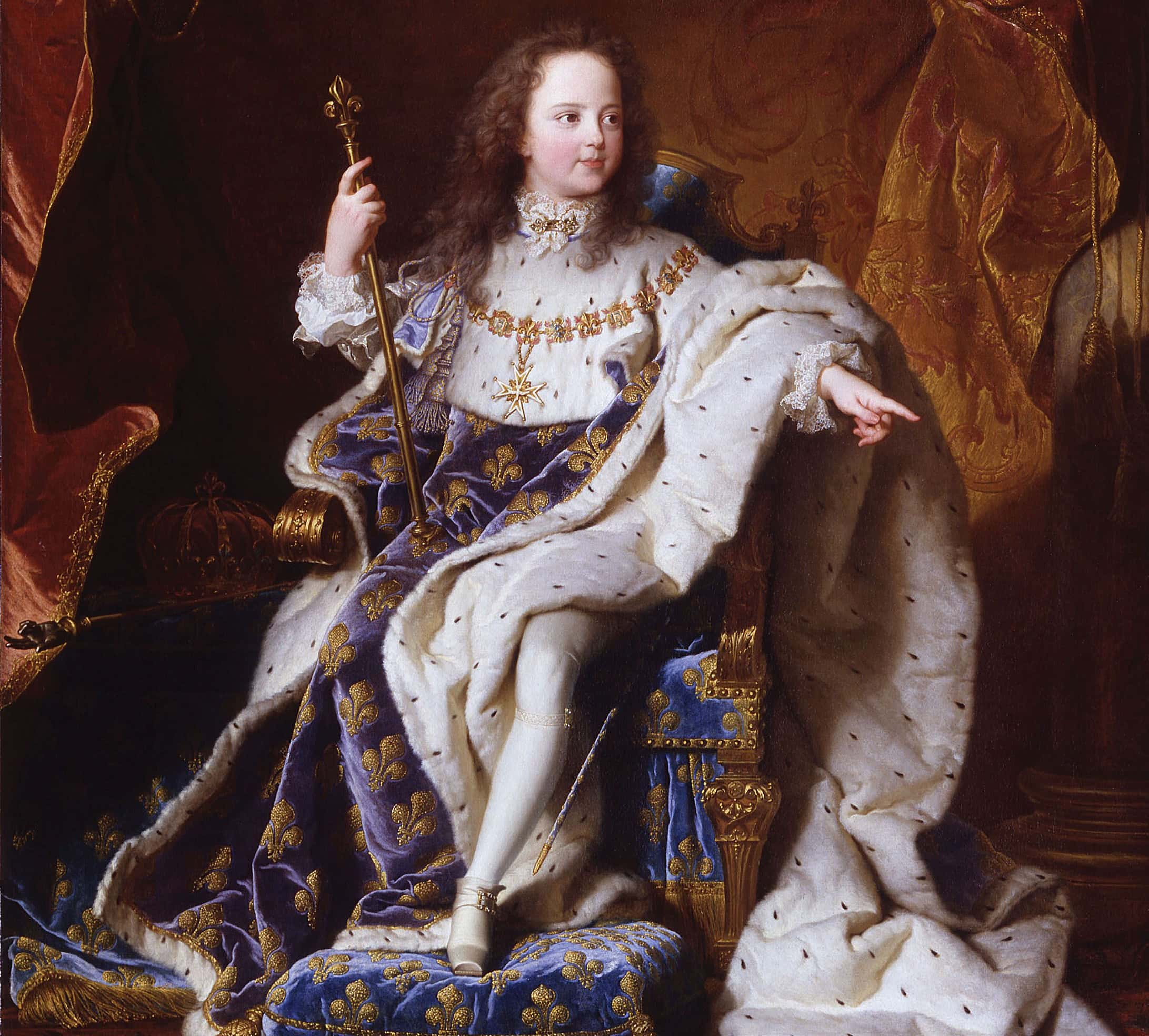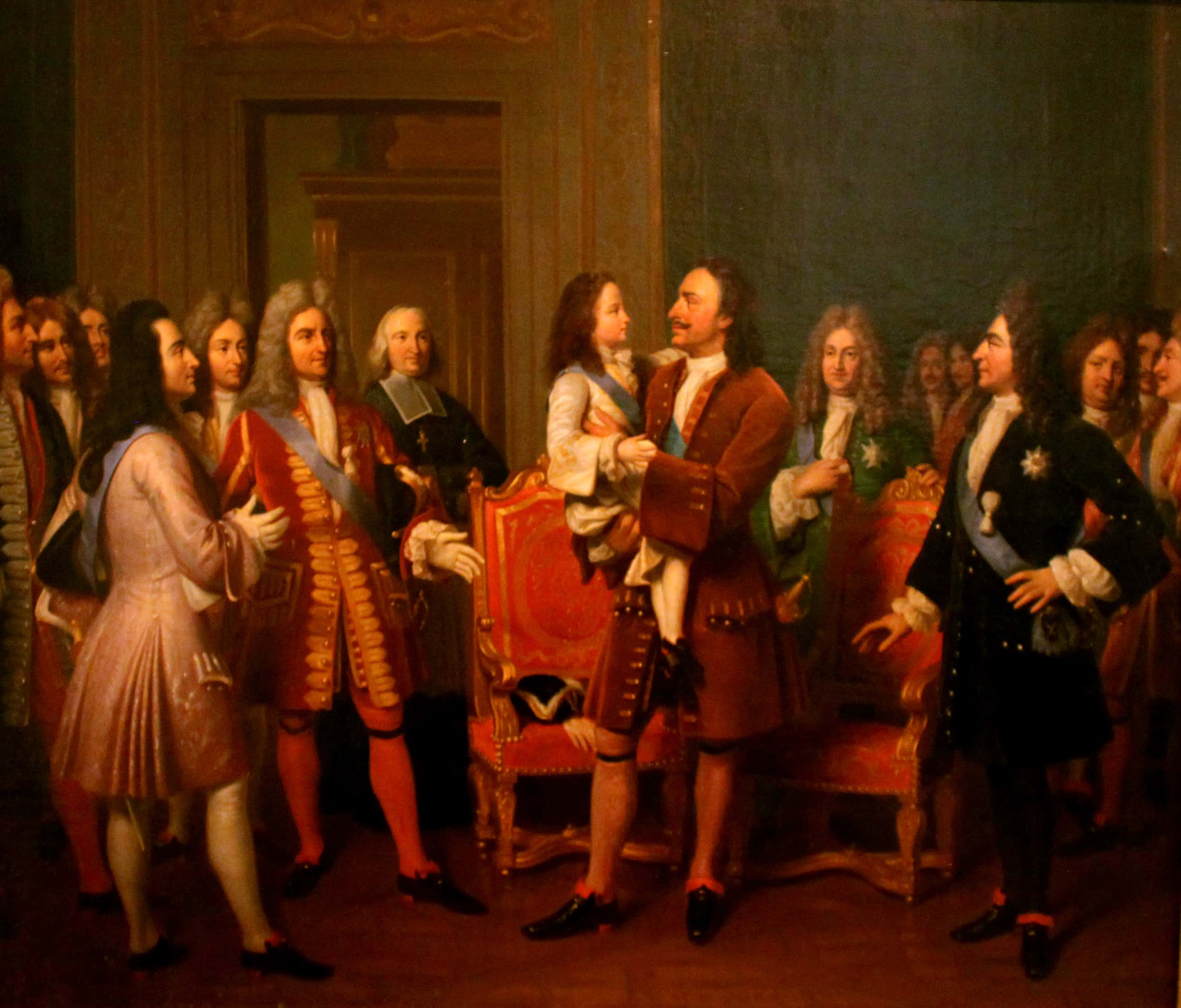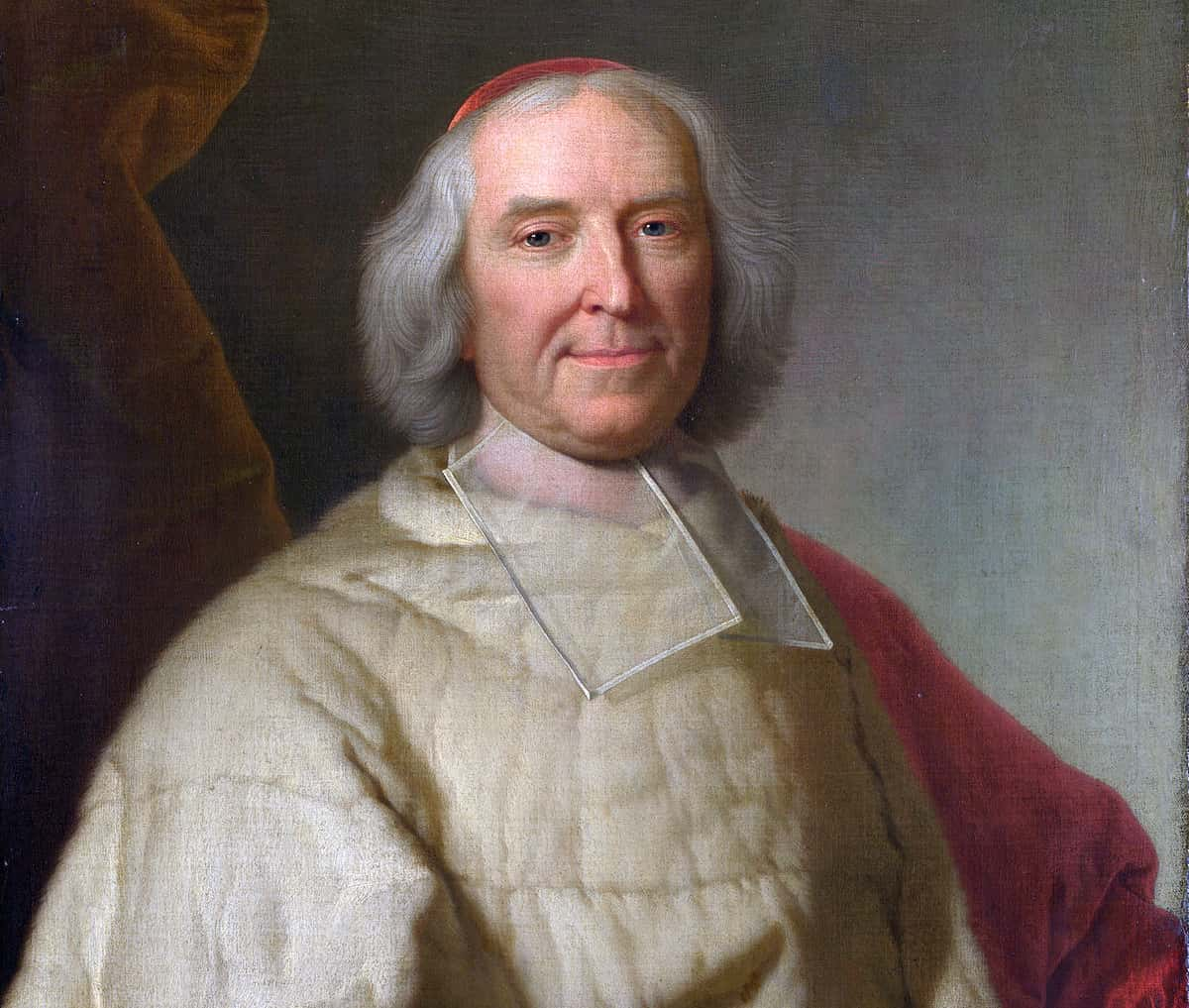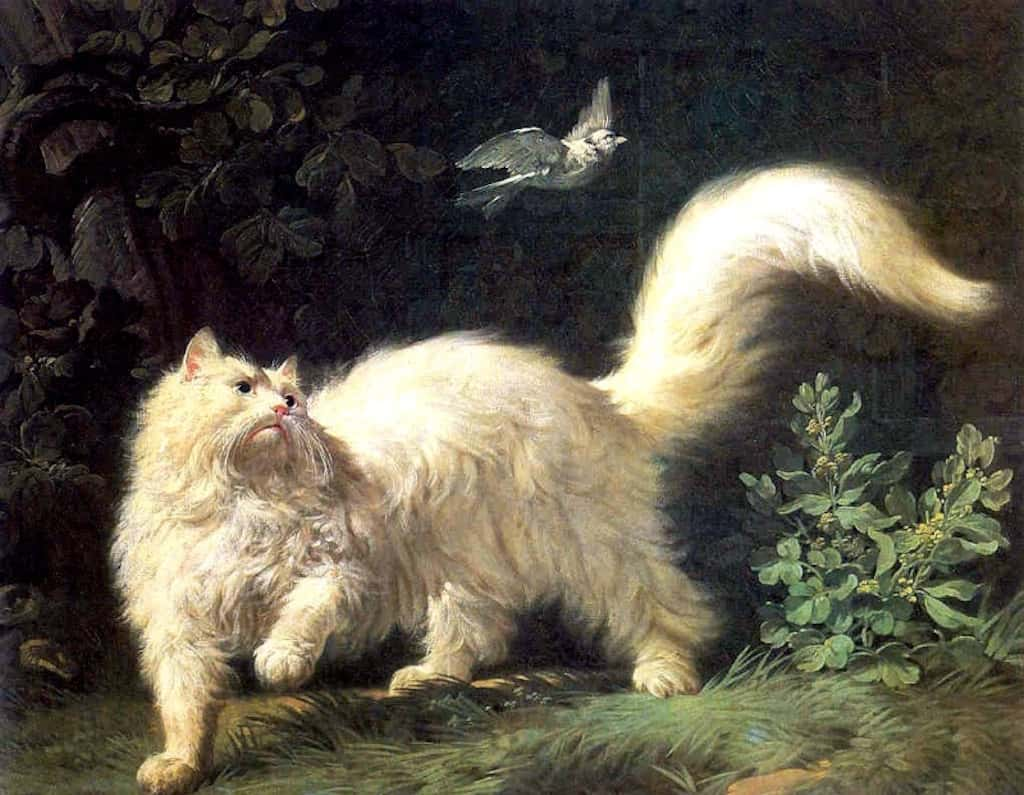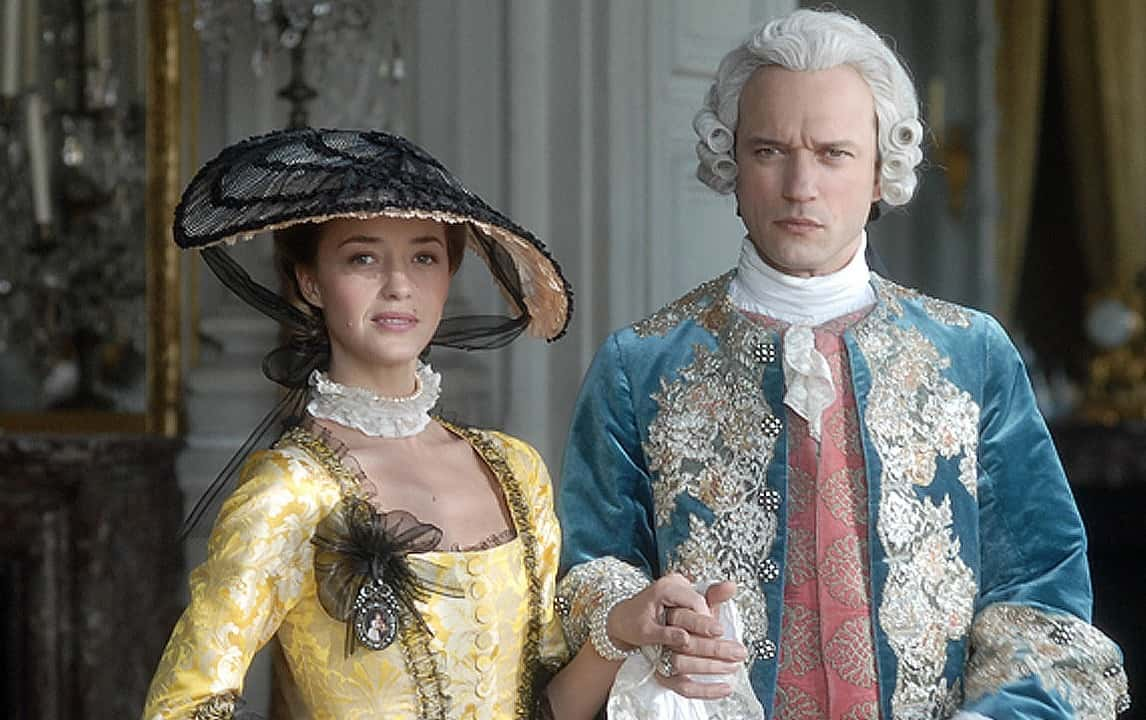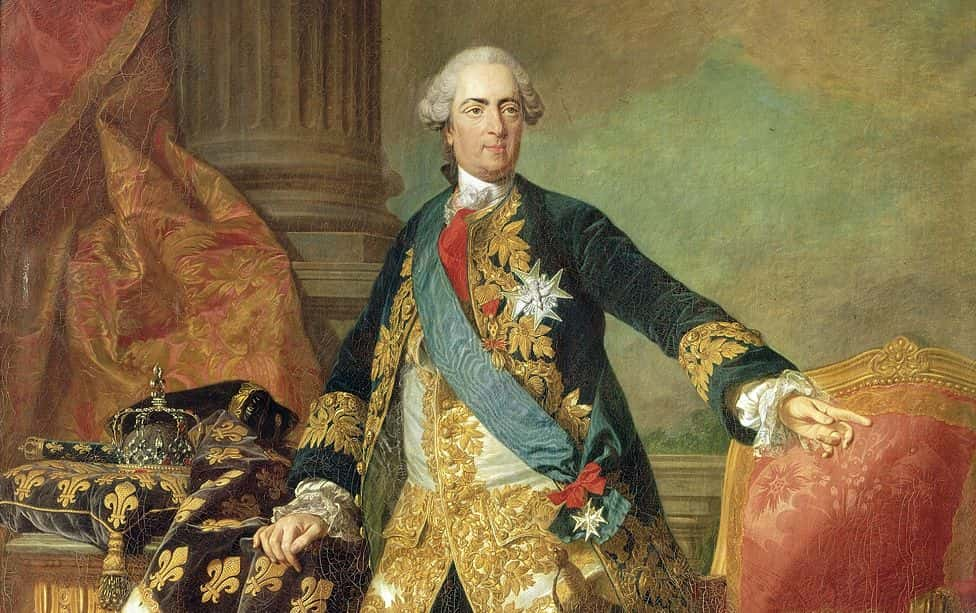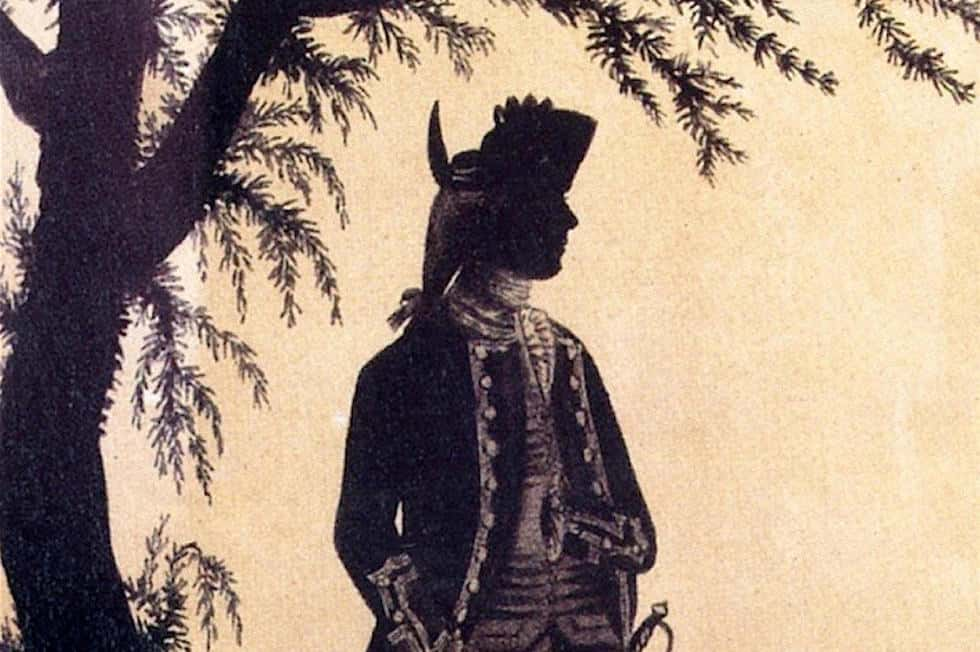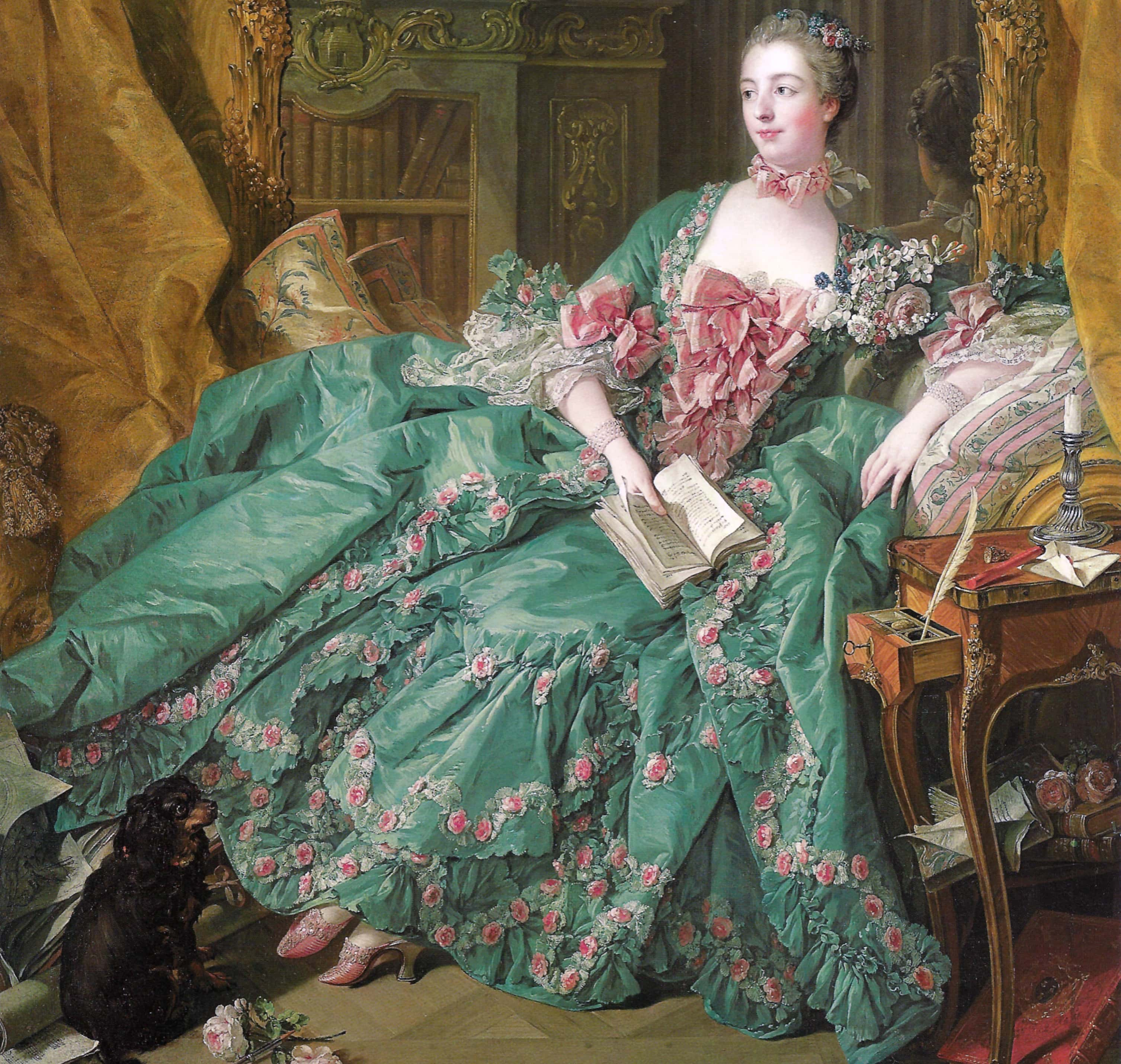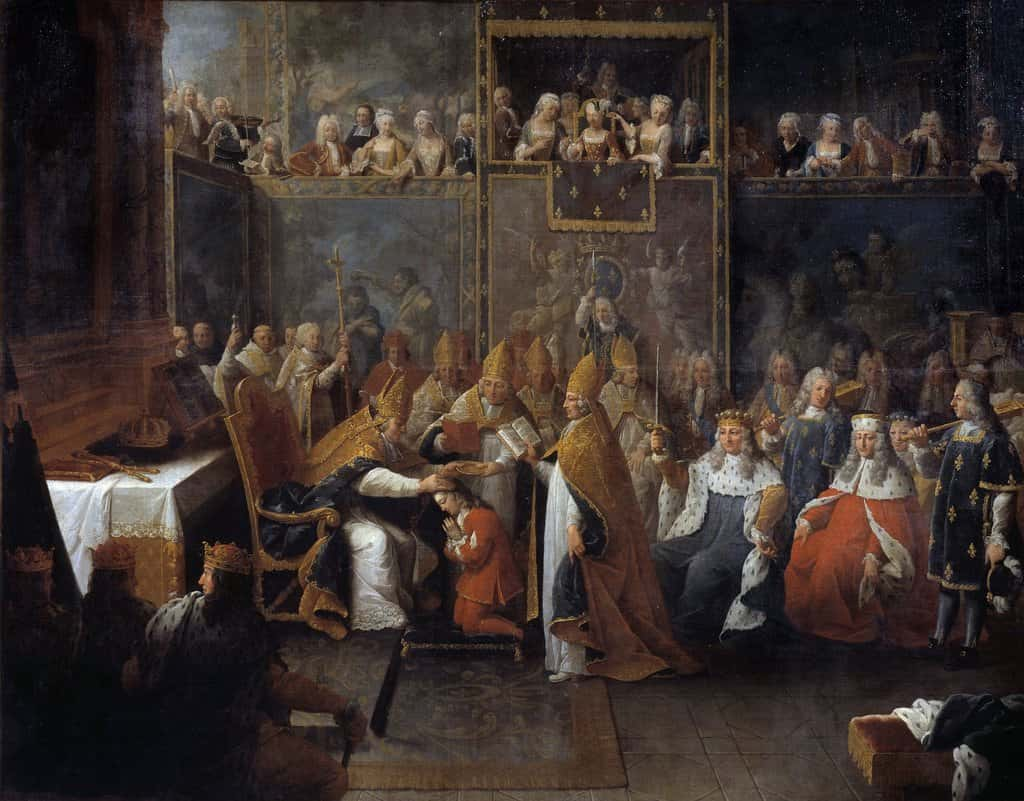“He was the most excellent of men, but, in defiance of himself, he spoke about the affairs of state as if someone else was governing.”—Duffort de Cheverny.
For a guy who reigned so long, Louis XV of France (1710-1774) left shockingly little to the public imagination. Smushed between his magnificent great-grandfather, Louis “the Sun King” XIV, and his beheaded grandson, Louis XVI, our Louis XV’s reign often gets dismissed as the quiet time between the French monarchy’s height and its downfall. That’s unfortunate, because there’s so much to be gained by examining how exactly Louis XV failed, died, and then arguably handed the bill for his grandson to pick up in the French Revolution.
Most historians and contemporaries rank his reign very badly: from disastrous wars to scandalous sex politics, he didn’t exactly run a tight ship. In his personal life, Louis also left little inspiration, as he was an overall shy dude who enjoyed the peace of the sciences (and his lovers) over courtly social life. But where there are Bourbon kings, there’s sure to be drama. Learn how it all began to end with these 42 decadent facts on King Louis XV of France.
King Louis XV Facts
42. Almost Beat You, Pops
Louis is the second-longest reigning monarch in European history. On the throne for almost 59 years, his tenure is outdone only by his predecessor and great-grandfather, Louis XIV “The Sun King” of France, who reigned for 72 years.
41. Preschool or Parliament?
Like his great-grandfather, Louis XV inherited the throne at a very young age. He was just five years old at his ascension and the first eight years of his rule were controlled by his regent, Phillipe II, Duke of Orleans.
40. Get in Line
Louis wasn’t born to inherit France. Arriving into this world during the reign of his great-grandfather Louis XIV, there were three people ahead of him in in the succession: his grandfather, his father, and his older brother, also named Louis, the Duke of Brittany. Unfortunately, tragedy would take these people from him very soon…
39. Little Orphan Louis
Within days of each other, Louis lost both of his parents to measles in 1712. In the year previous, his grandfather the Grand Dauphin had died of smallpox. With two generations of Bourbon heirs now eliminated, the now-orphaned Louis and his older brother—also Louis—were the only living legitimate heirs of their great-grandfather (also Louis). The future Louis XV was only two years old.
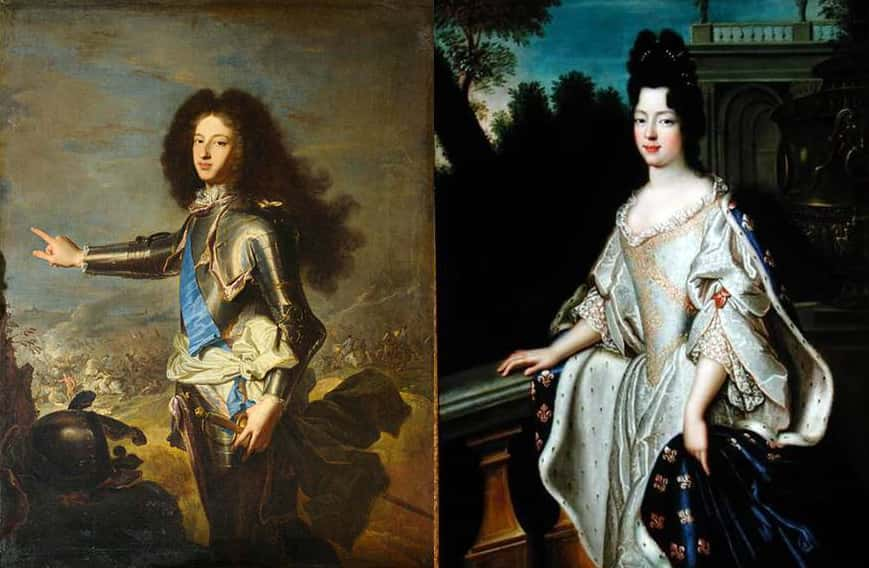 Titillating Tidbits About 18th Century France
Titillating Tidbits About 18th Century France
38. Hunger Games
In the late 1760s, rumors of a royal “Starvation Pack” grew among the people. Some believed the King and his advisors meant to deliberately starve the French to death to suppress protestors. This fear was born in the wake of the liberalizing the grain market, which had led to higher prices and made food less accessible.
37. My Bad?
The Seven Years War (1756-1763) is generally considered the biggest failure of Louis’ reign. Louis managed to lose most of France’s colonies to their mortal enemy, Great Britain. This huge loss of prestige—and imperial income—laid the groundwork for the financial crises and ill-faith in government that led to the French Revolution.
36. Different Folks, Different Strokes
Madame de Pompadour—born Jeanne Antoinette Poisson—was Louis’s chief mistress, closest advisor, and his longest-enduring romance. They were together for 20 years, until her death, but they ceased to have sex just five years into their relationship. Publicly, this celibacy was attributed to her poor health, but she also admitted to just not liking sex in general.
35. Hunting With the Girls
While Louis and Madame de Pompadour ceased physical relations early in their 20-year affair, Louis sated his physical desires on the side with casual sojourns in his “Parc-aux-Cerfs” or “Stag Park.” Despite popular belief, Pompadour did not set up her lover with a “harem.” Her only involvement was accepting Louis’s park in lieu of a substantial rival, stating “It is his heart I want! All these little girls with no education will not take it from me. I would not be so calm if I saw some pretty woman of the court or the capital trying to conquer it." Louis was happy with this arrangement, and in that end, that’s what mattered.
34. I Can’t Talk; I’m Too Shy
For a king and philanderer, Louis was not great a conversationalist. Most agree he was quite shy and secretive. Not one to have a big social circle, he often believed that only his mistresses loved him enough to tell the truth.

History's most fascinating stories and darkest secrets, delivered to your inbox daily.
33. Why Scale the Steps of Love When You Can Fly?
Louis XV owned one of the first modern elevators. In 1743, he came into possession of “The Flying Chair”—a device where he would sit in a throne and be pulled by several men into the next story of Versailles. Naturally, he installed his elevator as a discreet means to visit his mistress without having to take the stairs.
32. Bloated Beloved
Louis XV was known as “Louis the Beloved” for his miraculous recovery from illness in 1744. At least for a while…
31. Let ‘Em Loose
Under Louis’s government, “Laissez Faire” economics gained traction. His chief finance minister was also his doctor and an economic theorist on the side: Francois Quesnay, a proponent of “free market” agriculture. King Louis adopted his minister’s ideas about rolling back on government price control and opening large zones of “free trade” around Paris. The results were… mixed.
30. A King Waits for No One
At first, Louis and his wife Queen Marie Leszczyńska had a loving relationship. The king mostly took lovers as “substitutes” in his bed during Marie’s many pregnancies. The couple’s polite arrangement changed in 1738 when the Queen dangerously miscarried. Her doctors warned her against sex until she was fully recovered. Insulted—because he’s really the one suffering here, right?—Louis could not forgive Marie’s (medically prescribed) rejection and he never came to her bed again.
29. He Knows What He Likes
Louis appointed three sisters from the same family as his chief mistresses. First came Louise Julie de Mailly, who served his wife at court. He fell in love with her practically at first sight and raised her immediately to the rank Duchess. However, he then turned his heart and other parts to Julie’s sister, the married Pauline-Félicité. Unfortunately, this one died from childbirth and he remained with Louise Julie.
Finally, he met the youngest sister of the de Mailly family, Marie-Anne. She agreed to be with the king only if he dumped her oldest sister right away—otherwise, it could become weird, right? His enduring interest in the de Mailly sisters was a national joke and inspired a comedic poem that ended, “Choosing an entire family – is that being unfaithful, or constant?"
28. You Only Love Twice
Barely two months after his wife’s death, Louis’ passion for the ladies was rekindled by the last of his great mistresses, Jean Bécu, aka Madame du Barry. In September 1768, he met Barry at Versailles… where she was then mistress to another nobleman. Immediately “taking” her for himself, Louis appointed this illegitimate daughter of a seamstress as his new chief lover, which scandalized the court. Louis was 57 at the time; Barry was 33 years younger.
27. I Love You, But I Love Heaven More
Despite his favor for Madame du Barry, Louis sent his chief mistress away from court in the last days before his death. After all, it wouldn’t do to make a last confession before God if you were living in sin.
26. In the Garden of Bourbon
A lifelong nerd, Louis XV had a passion for the sciences, especially botany. He invested much in the famous Versailles gardens. In particular, he developed the King’s Garden and Trianon Botanical Garden using a state-of-the-art (for its day) Swedish system of plant classification.
25. The Electric Slide
Some of the first European experiments with electricity were done under Louis’s patronage. In 1746, Abbé Nollet performed a “Leyden jar” demonstration in the king’s audience, wherein he successfully produced an electric charge. Look, it was impressive for its time.
24. For Sale; Love Nest, Never Used
In 1762, Madame de Pompadour convinced Louis to construct the Petit Trianon, a luxurious mini château within Versailles that would serve as their love nest. Unfortunately, Pompadour passed away before construction could be finished. But don’t worry, it didn’t go to waste: the Petit Trianon went on to serve as home base to Pompadour’s successor in the royal bed, new maitresse-en-titre, Madame du Barry.
23. Little King in the Big City
Although Versailles was the cultural hub of his predecessor (and he would return there in his adulthood), Louis was not raised in the famous country palace. Instead, his regent sent him to be educated in the “official” capital of Paris. There, Louis learned court etiquette, led some parliamentary duties as a little king, and even entertained foreign guests like Peter the Great of Russia in 1717.
22. Too Adorable to Rule
In a flagrant—but cute—disregard of palace protocol, Tsar Peter the Great of Russia picked up a seven-year-old King Louis and planted a kiss on the boy-king upon their meeting.
21. He’s No Twinkle-Toes
Part of Louis’s kingly education included dance… much to his regret. You see, Louis was a natural introvert who did not like pageantry. While his great-grandfather loved the ballet, Louis had no passion in steps. Nevertheless, his teachers forced him to perform in public ballets twice. He never danced ballet in public again after New Year’s Eve, 1721.
 Pinterest
Pinterest
20. Not All Nerds Are Made Equal
Louis’s wife, Marie Leszczyńska, was six years his senior when they were married in 1725. He was 15 and she was 21. While he was a science nerd, she preferred to spend her private time with her courtiers reading and playing music.
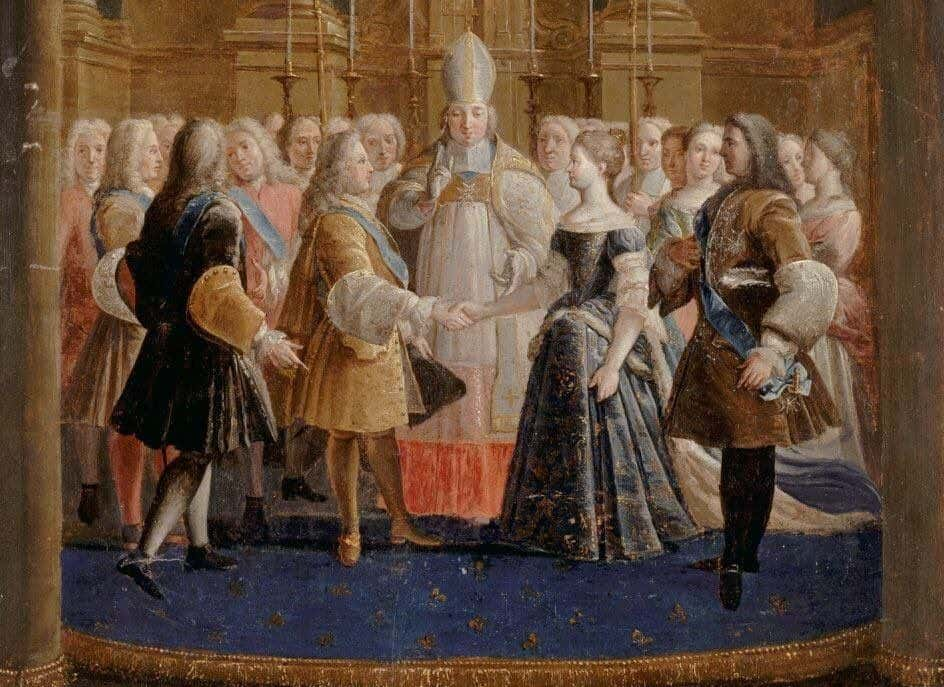 Pinterest
Pinterest
19. All for Me
For his Sweet 16, Louis got his first prime minister, Cardinal Fleury. The cardinal would hold the office until his death in 1743. Afterward, Louis would rule without a prime minister, just like his great-grandfather, Louis XIV. This move was a callback to the autocracy of Louis XIV’s “Sun King” days, although most would agree this Louis lacked the personality to pull it off.
18. The King of Cats
Louis XV was a cat person to the extreme. He let felines basically overrun Versailles; it’s said that grey angora cats frequently walked over the gambling tables like they owned the place.
17. One Day You’re In, The Next Day You’re Out
Although the prowess of royal French mistresses is vulnerable to exaggeration, Madame de Pompadour seems to have exerted huge influence over the policy of Louis XV. Upon her recommendation, Louis dismissed accomplished ministers such as Machault d’Aurnouville and the Marquis d’Argenson.
16. Tax Me Not
As a precursor the French Revolution in his son’s reign, Louis XV had to deal with the “Rebellion of the Parlements.” As a collection of nobles and wealthy citizens, the Parlements refused to agree with Louis’s taxation bills and went on formal protest against his ability to collect taxes from all classes. While the king eventually overpowered them, they would survive to resist his attempt at new taxes at every turn for the rest of his reign.
15. For Love and Church
Under Louis’s reign, the Suppression of Jesuit Order bill was passed. The issue on how to handle the rising Christian group divided not just France, but the royal family. Although Louis’s son, daughters, and wife supported the Jesuits, his chief mistress Madame de Pompadour did not. Louis ultimately sided with his mistress, and the Jesuits saw their rights to assembly and worship greatly reduced.
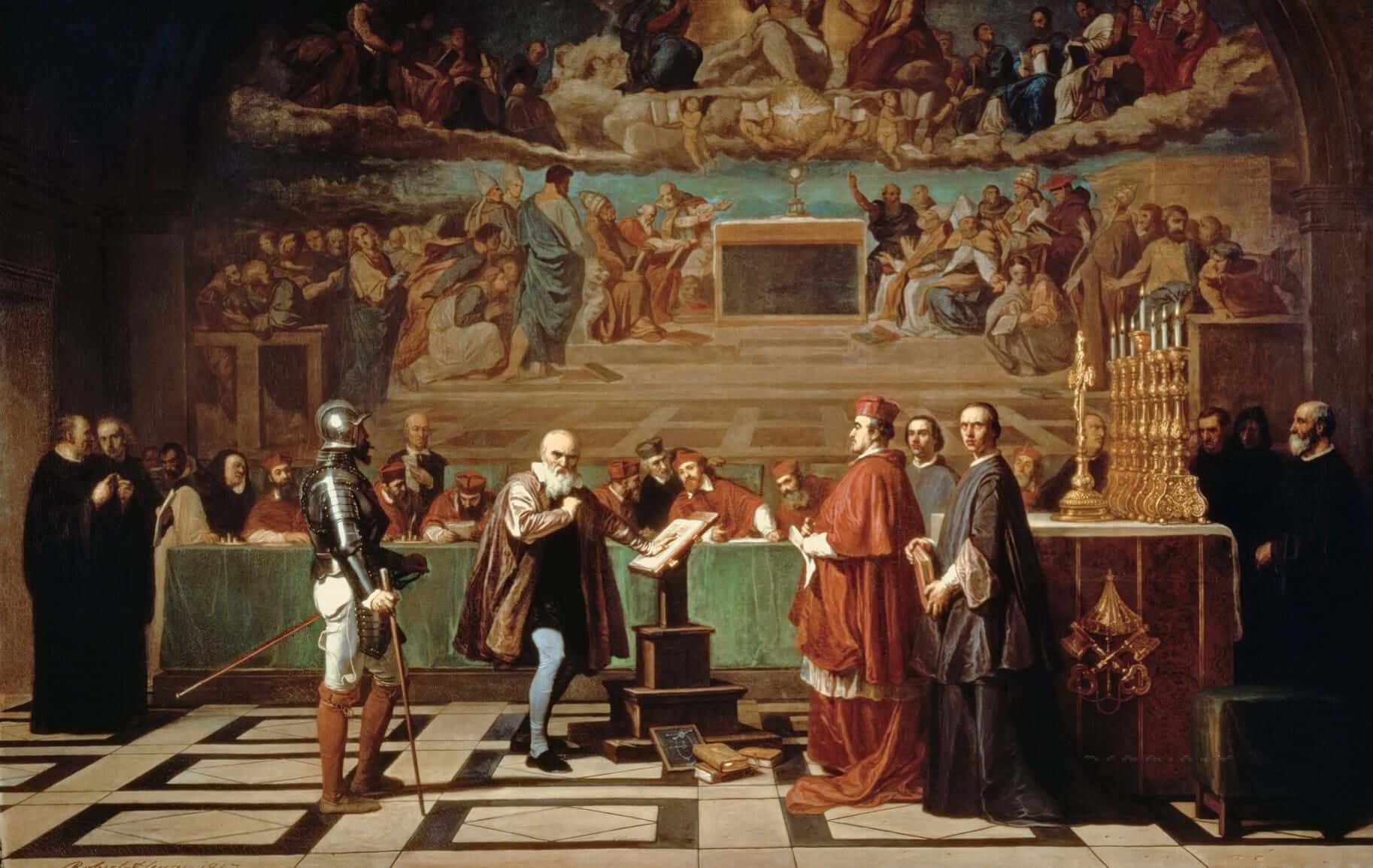 Pinterest
Pinterest
14. Like a Shadow, He’s Gone
Thanks to an unpopular finance minister, the term “Silhouette” gained popularity in Louis’s reign: his new finance minister Étienne de Silhouette introduced new taxes on luxury items. Highly unpopular with the rich, the minister was relieved of duty after just eight months, so people started making puns about “silhouettes” that lasted just as long as his tenure.
13. Missing in Mourning
Madame de Pompadour died of pneumonia on April 15, 1764. Although the king deeply grieved, court protocol forbade him from attending her funeral; she was still born to the middle-class and therefore too low-ranking to deserve a royal funeral attendance, even from her life partner.
12. Closed for Business
After the death of Madame de Pompadour, Louis effectively closed down his “Stag Park,” where he romped with his lower-tier mistresses.
11. Did You Hear Something? I Didn’t
In 1764, Louis arrested and replaced the President and leading officers of the Navarre Parlement. They had resisted, again, the king’s right to impose taxes without permission. Other Parlements fought back and the king gave them a stern talking-to. This did little, as Parlements continued to take down his proclamations, showing off the political impotence of their king.
10. The Son Also Sets
Just one year after the death of his beloved mistress, Louis was struck by another personal blow: the death of his son and heir, Louis—had they not learned not to name their heirs Louis by this point? The Dauphin contracted tuberculosis while traveling with his father. For his part, King Louis occupied himself with his astronomy hobbies as doctors tried to treat the prince. But it was all in vain: the Dauphin died on December 20, 1765.
 Altes und Neues von Bernd Nowack
Altes und Neues von Bernd Nowack
9. They All Fall Down
Louis’s neglected queen Marie was horribly impacted by the Dauphin’s 1765 death. It was followed soon after by the death of her father the next year and then her daughter-in-law. Queen Marie died herself shortly after on June 24, 1768, leaving Louis the most alone he had been since his ascension as an orphan.
 Pinterest
Pinterest
8. Bigger the Better?
Louis’ reign saw the last enlargements to the Kingdom of France before the French Revolution: the Duchy of Lorraine was reverted back to the king in 1766 and the Republic of Corsica was acquired—after much fighting—in 1770.
7. Saved by My Sense of Style Again
In January 1757, Louis survived an assassination attempt thank to the thickness of his winter furs. The assailant, Robert-Francois Damiens, made his way through the king’s guard and managed to stab him. While he was injured, the furs had cushioned enough of the knife for him to survive.
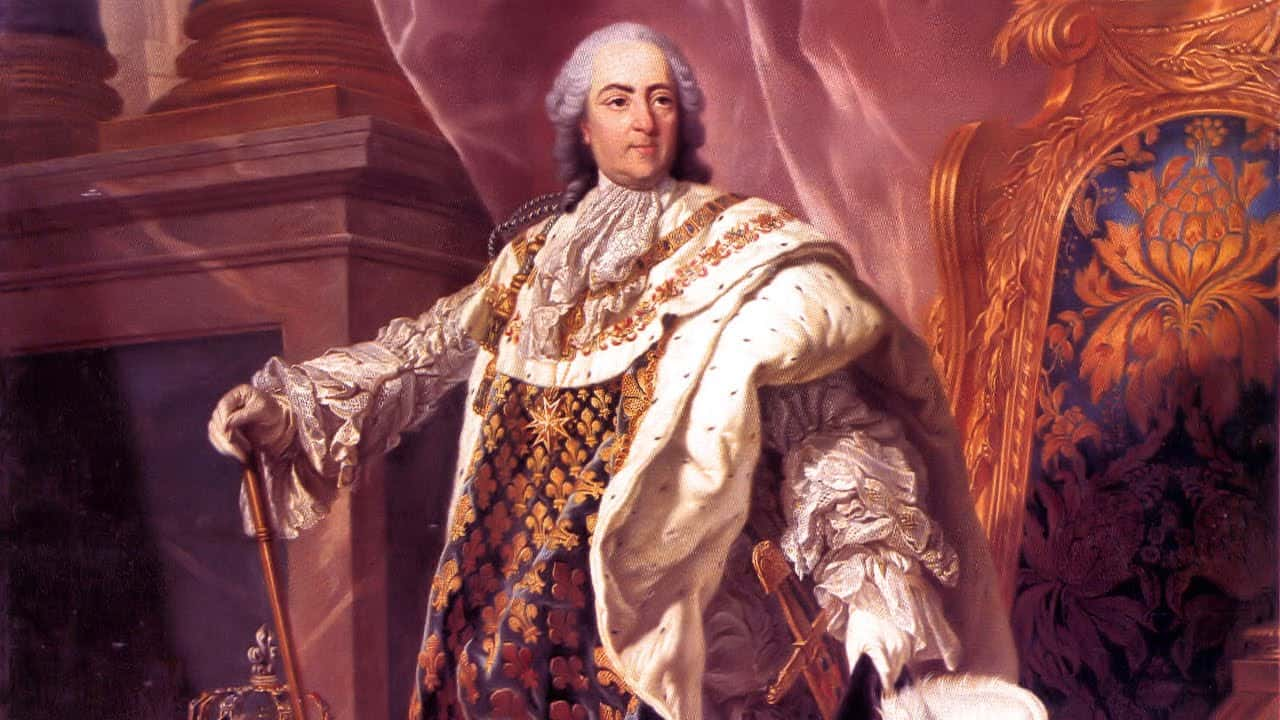 YouTube
YouTube
6. Does a Knife Need a Motive?
For trying to kill the king, Robert-Francois Damiens was drawn, quartered, and had his remains thrown in a bonfire (allegedly while he was still alive, though how anyone could survive being drawn-and-quartered I have no idea). If that weren’t enough, the house where he was born burned down, his father, wife, and child were exiled from France, and her siblings were forced to change their names. There seems to have been no clear motive behind all this bloodshed: most agree he was simply suffering from severe mental issues and targeted the king over religious disagreements.
5. What’s a Vow Anyways?
Louis the Beloved got a lot less “beloved” by the people for going back on his deathbed promise to a priest. As the king lay deathly ill in the summer of 1744, he was refused absolution from his chaplain on the grounds of his open adultery. With little choice, Louis promised to give up his then-mistress, Marie-Anne de Mailly. When Louis recovered, he took it all back and re-embraced his lover.
To his embarrassment, the king’s confession had already been distributed amongst the people, letting everyone know he was a deathbed welcher and making the monarchy look really bad. Playing takesie-backies with your priest doesn’t play well with the people.
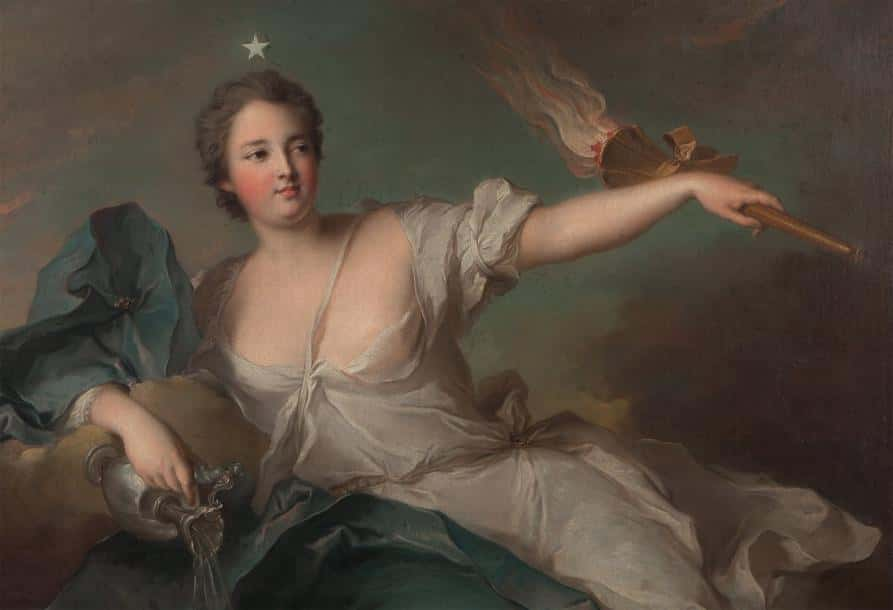 Pinterest
Pinterest
4. Last of the Louises
In March 1712—just one month after the death of their parents—both future Louis XV and his older brother, Louis the Duke of Brittany, contracted measles. Their heir, the elder Louis, was treated in the traditional way, i.e. with bleeding. His older brother ended up dying of both measles and blood loss complications. In contrast, Louis’s treatment was stopped just in time for him to survive and become his great-grandfather’s only legitimate heir.
3. Why Not Share the Blame?
Louis expressed some self-awareness with regards to his lack of leadership skills. He wrote in his will, “If I made errors, it was not from a lack of will, but from a lack of talents, and for not having been supported as I wished to have been, particularly in matters of religion."
2. There’s No Business Like Show-Off Business
For the wedding of his grandson to Marie Antoinette, King Louis XV constructed a legendary opera theater. It was equipped with state-of-the-art adjustable panels, which would make transforming the sets into a mere two-day process instead of starting from scratch every performance.
1. Going for the Bronze
Smallpox ultimately killed the 64-year-old Louis. It’s said the diseased eruptions had left his face “a mask of bronze” by the time he passed away on May 10, 1774.

